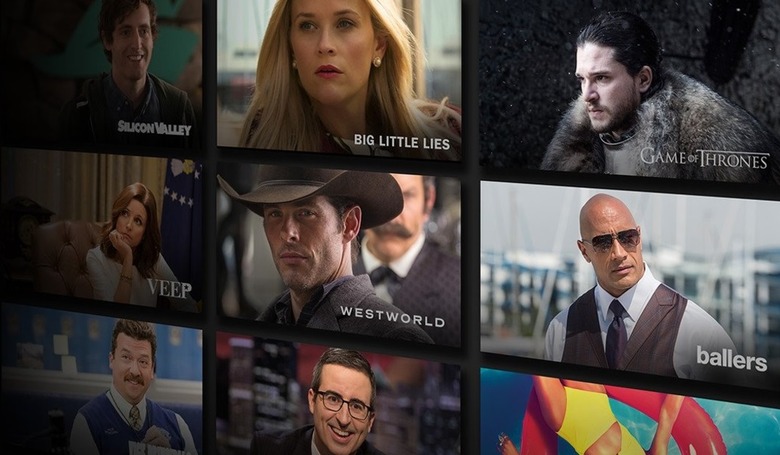HBO Chasing Netflix In Its First Year Under AT&T Will 'Feel Like Childbirth'
As a subscriber to both Netflix and HBO, and as a binge-watcher of many of their shows, I'd have a hard time choosing between the two. I'd probably go with Netflix if I were forced to stick with just one of them right now, although it's shows like Game of Thrones that would make that such a difficult choice choice. Thankfully for HBO fans, AT&T wants to make HBO more like Netflix. A lot more Netflix. That's also somewhat terrifying, as there's always a chance that AT&T will screw things up.
AT&T's John Stankey delivered the news that significant changes are coming during a town hall meeting with 150 HBO employees. AT&T is, of course, the new owner of HBO so it can do pretty much as it pleases. In an hour-long chat with HBO CEO Richard Plepler, Stankey laid out the plan of attack for the next years, emphasizing that the first year will be the hardest.
"We need hours a day," Mr. Stankey told the audience, according to a recording of the event obtained by The New York Times. "It's not hours a week, and it's not hours a month. We need hours a day. You are competing with devices that sit in people's hands that capture their attention every 15 minutes."
He continued, "I want more hours of engagement. Why are more hours of engagement important? Because you get more data and information about a customer that then allows you to do things like monetize through alternate models of advertising as well as subscriptions, which I think is very important to play in tomorrow's world."
That sounds both exciting and also somewhat creepy, given that it's AT&T making these statements.
Stankey did not say how much AT&T is willing to invest and he did not mention Netflix by name, but it's pretty clear what the exec was hinting at. Over the past three years, HBO spent more than $2 billion a year on content, bringing in nearly $6 billion in profit. But Netflix is going to spend more than $8 billion on content this year alone. There seems to be no contest here, and AT&T is well aware of it.
Stankey wants HBO to make more money and significantly increase the number of subscribers in the US and worldwide.
Plepler, meanwhile, seemed open to the challenge. "I've said, 'More is not better, only better is better,' because that was the hand we had," he said. "I've switched that, now that you're here, to: 'More isn't better, only better is better — but we need a lot more to be even better.'"
Stankey assured everyone in attendance that nobody will lose their jobs, but that they'll work harder than ever, especially in the first year. "I suspect if we're in a situation where we're going to be investing heavier, that means that there's going to be more work for all of you to do — and you're going to be working a little bit harder," he said.
"You will work very hard, and this next year will — my wife hates it when I say this — feel like childbirth," he continued. "You'll look back on it and be very fond of it, but it's not going to feel great while you're in the middle of it. She says, 'What do you know about this?' I just observe, 'Honey. We love our kids.'"
Will we, the subscribers, also feel like these childbirth pains? Only time will tell.
